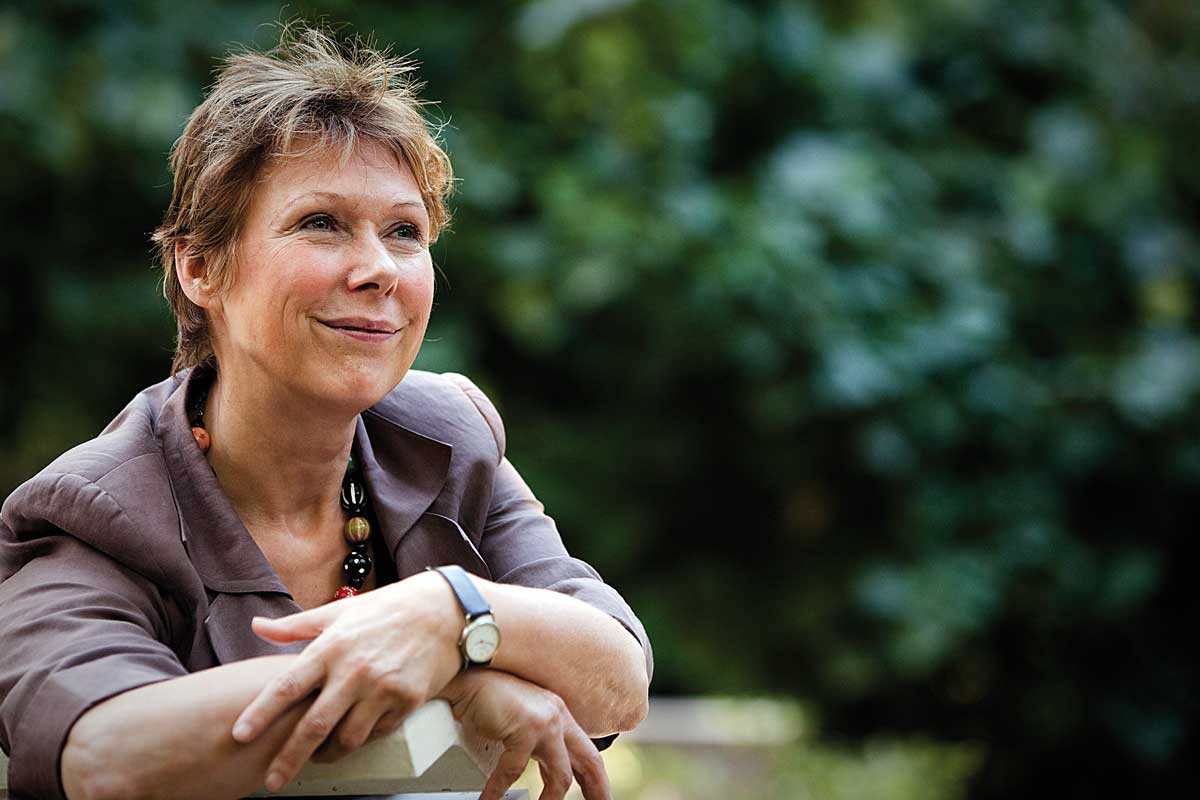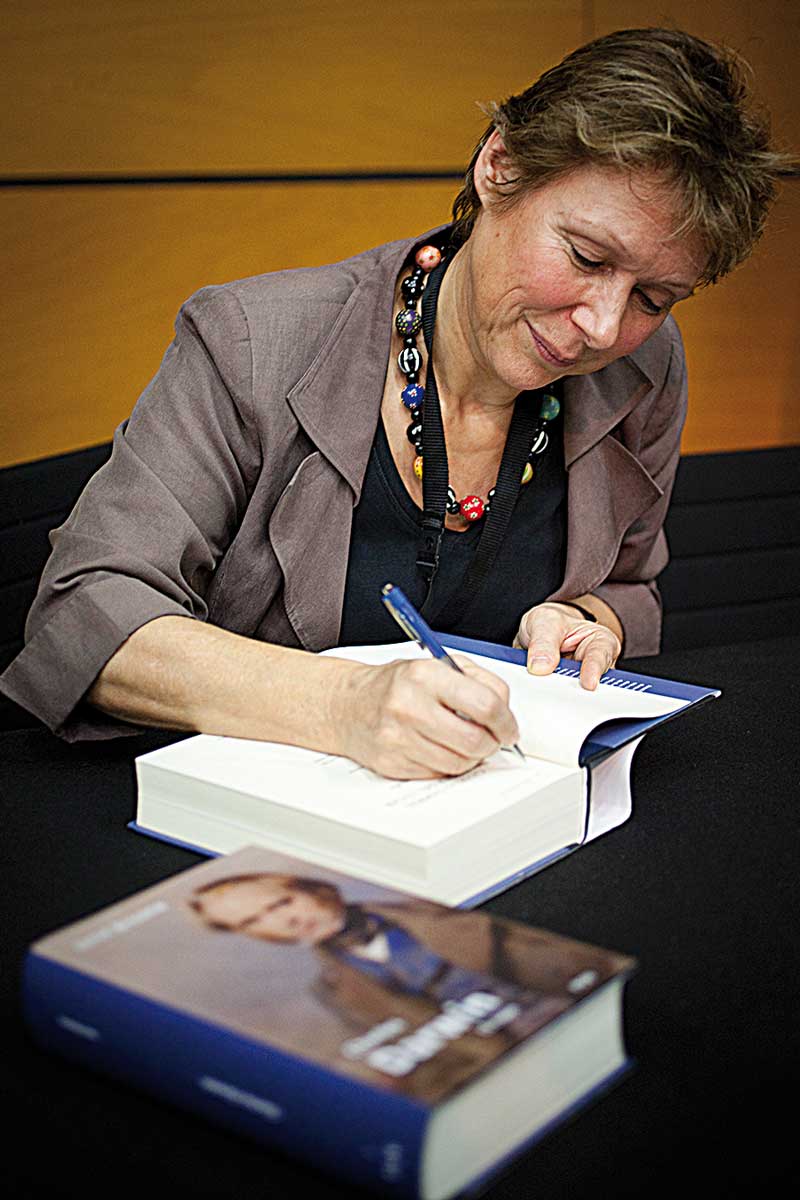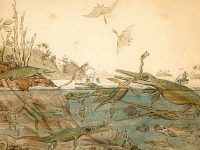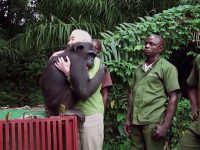Janet Browne
«Each new generation must review his legacy and draw new conclusions»
Science historian and Charles Darwin biographer

[The following text is only a summary of the full interview published in Spanish and Catalan]
By the end of 2009, the Year of Darwin celebrations were coming to an end. The science historian, Janet Browne, visited Valencia on the occasion of the biennial congress of the Spanish Society for Evolutionary Biology (SESBE), which was one of these celebrations that commemorated Charles Darwin’s birth and the 150th anniversary of the publication of On the Origin of Species.
Your biography on Charles Darwin is considered the best biography on the naturalist ever written. However, there were already excellent works that dealt with Darwin’s life. Why did you choose to start such an arduous and long project?
It is always interesting to study Charles Darwin’s life and works and interpret them. My work is different to previous books, and I think that is enriching. I hope this is not the last study on Darwin. Each new generation must review his legacy and draw new conclusions.
And personally, what motivated you to carry out this work?
I had been working as the editor of Darwin’s correspondence at Cambridge University, and I really enjoyed it. It was a great opportunity that enabled me to learn a lot of Darwin and I started to wonder about his life. That made me want to know more about him.
You were able to access a great deal of material on Darwin. Actually, you used many of Darwin’s letters to make a reconstruction of his life. Can selecting sources and compiling information be a problem for a science historian?
It is very hard to make a selection. I thought it would be revealing for readers to enjoy Darwin in the same way I did. I tried to let Darwin himself talk. I wanted to show not only Darwin the scientist, but also Darwin the husband, the father, the friend…
We can find Darwin’s image as well as his ideas within the sphere of popular culture. For example, in cartoons.
That is a very rich sphere for research, which has also made me think thoroughly about the whole legend of Darwin, how it reached society and how it has been transmitted. We can find many references to science in popular culture —cartoons, T-shirts, slogans… The way the theory of evolution has been represented in popular culture is a very interesting matter, and very little research has been carried out on the subject. For example, everyone knows that diagram that shows the different stages of the genus Homo until becoming Homo sapiens, a diagram everyone relates automatically to evolution.

Can popular culture tell us something about the reception of Darwinism in different countries?
One of the characteristics of the iconography of evolution and of Darwin himself is that it is spread throughout very different countries. Anything related to Darwin is very popular. And there are a lot of references to Darwinism, even in alcoholic beverages, like the bottle of Anís del Mono.
Stating that Darwin’s ideas about nature have changed our world view (and our own) is quite common. But today evolution is a controversial issue for some people. What role does history play in supporting evolution as a key explanatory theory for natural sciences?
That is a very compromising question because historians can only establish social and historical contexts for discoveries and scientists, and not much else. I think today’s findings are better supporters of evolution and Darwin’s theories. But, the starting point for today’s research is Darwin’s work, and the role History has to play is to contextualise the naturalist’s works. It is not easy to understand Darwin if you don’t know the time he lived in. It can be really interesting for a biologist to carefully read On the Origin of Species.
You are acquainted with the American society and its problems to admit the theory of evolution. Is it a particular problem of a section of society or is it a more generalised issue?
That is a very interesting question, because in the USA it is hard for people within some spheres to accept the theory of evolution, but it is not easy to generalise. Sometimes this rejection comes from a particular religious system, but this is not always the case. In America, the evangelicals are particularly reluctant to admit Darwin’s theories. I have been living in the USA for three years now, and I think that it is intriguing an worrying, because now we see that creationist theories have spread to other countries. And why is it so? I think the problem is not accepting the theory of evolution but accepting scientific and technological progress in general. I mean, they are not against the theory of evolution but against science and the modernisation of society.
And what role do the Year of Darwin celebrations play in transmitting the figure of Darwin?
It is the way biologists have of supporting the theory of evolution. Ever since Darwin’s death until today, there have been two dates (1909 and 1959) in which there have been celebrations around the figure of Darwin and the theory of evolution. Their purpose was the diffusion of knowledge more than just remembering someone.





